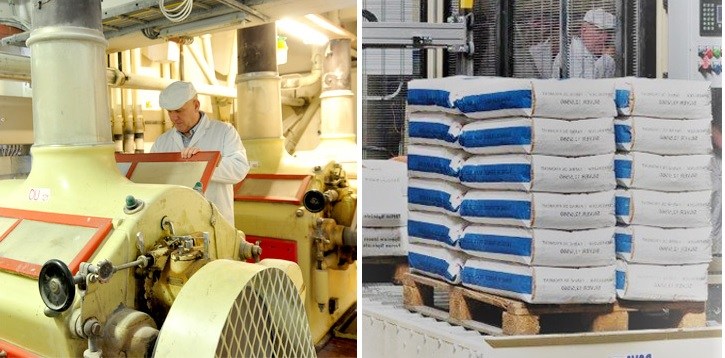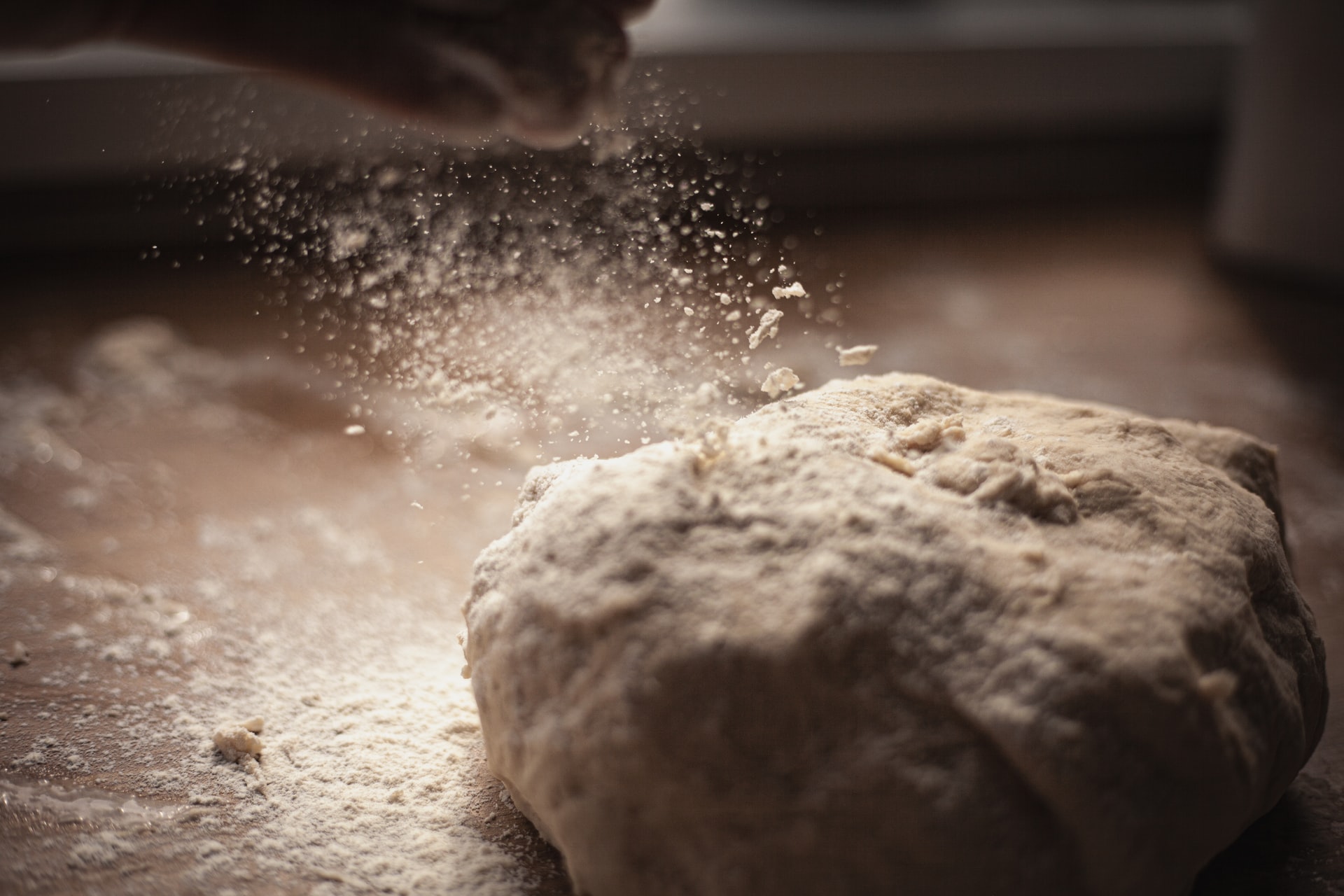Colruyt Group, five organic farmers, a flour mill and a bakery are joining hands to form a new supply chain for Belgian organic wheat, according to the Flemish infocentre for agriculture and horticulture (VILT).
The various links in the supply chain for organic bread include the five farmers, flour mill Molens van Oudenaarde, bakery Atelier du Pain and bio supermarket Bio-Planet.
The aim of the cooperation is to ensure that from this autumn onwards, Bio-Planet shops will be able to carry entirely Belgian bio-bread.
“Each player in the chain sticks to their [expertise] and does what he is good at,” said Jan Van Holsbeke, division manager of Bio-Planet.
“However, clear agreements were made beforehand between the partners about volume, quality and price.”
The Colruyt supermarket chain has some experience in developing these sorts of partnerships. They invested in the Brussels cricket bar company Kriket to develop and sell their snack bars made with cricket flour last year.
“As a purely Belgian family business, it is one of Colruyt Group's objectives to source as many of our products as possible from Belgium,” said Saskia De Block, head of the agriculture and horticulture department at Colruyt Group.
“Four years ago, we started our first cooperation project in agriculture and horticulture, and in the meantime we already have several partnerships running.”
There isn’t a global approach to the strategy.
“We look at the challenges for each product group, both in terms of production and in the chain,” explained De Block.
“Experience has taught us that there are no easy projects in agriculture and horticulture, but the great added value is that we talk to each other directly, in all transparency, constructively and open-mindedly. That is how we arrive at solutions. That includes a bit of jumping, not only for the growers, but also for us as Colruyt Group.”
De Block says this was no different when setting up this new Belgian chain for organic bread.
“We noticed that, until today, there was hardly any bread made from Belgian wheat on the shelves, despite consumer demand,” said Colruyt Group.
The reason, they say, is simple: for Belgian farmers, the cultivation of baking wheat was financially uncertain.

The flour will be made at Molens van Oudenaarde. Photos from Molens van Oudenaarde.
While the price of baking wheat is close to that of feed wheat, the yield is a lot lower. Belgian weather conditions, which can be rather unpredictable, also affect wheat growers, as they cause the quality of the wheat to fluctuate.
Farmers worried about making the leap to baking wheat without a guaranteed market, as they’d have to compete with imports from Germany and Eastern Europe.
In order to offer an answer to the consumer's demand for locally produced food, Colruyt spent months in conversation with farmers, mills and bakeries before reaching an agreement on volume, price and quality.
Supply chain participants signed a cooperation agreement last Thursday at the organic arable farm of Damien and Guy Depraetere in Deftinge, East Flanders.
“This agreement should provide the necessary oxygen to growers, millers and bakers by assuring them of their sales,” explained Jan Van Holsbeke of Bio-Planet.
“But at the same time, we hope that it can give a boost to the Belgian organic wheat sector so that other organic growers will dare to take the plunge.”
The five organic growers, spread geographically throughout Belgium, have sown 12 hectares of organic wheat this year. If all goes well, they hope to harvest some 55 tons of wheat in August.
For the selection of the wheat varieties and the cultivation guidance, they relied on the West Flanders test centre Inagro.
“The protein quality is very important for baking wheat. It is therefore important to work with the right varieties,” said organic farmer Guy Depraetere. “Inagro helps us with that.”
For Depraetere, who together with his son converted the family farm to organic in 2010, grains are an important crop in his cultivation plan.
“Grains are essential as a resting point for the farmer and the soil, and they offer the possibility for a follow-up crop that is good for carbon storage, erosion control and nitrogen management,” Depraetere said.
In organic farming, green manures like the ones made from grains are critical because the use of artificial fertiliser is not permitted.
The Depraeteres already have some experience with organic baking wheat.
“We deliberately chose baking wheat because the yield is much higher if you can market your products for human food rather than animal feed,” explained Depraetere.

Photo by Duncan Kidd on Unsplash
Still, the results of the cultivation are variable.
Weed control in winter wheat isn’t easy, and spring wheat yields can be low. Game damage is often common, because the small wheat plants are beloved by crows.
“Good growing conditions from sowing onwards are crucial for the crop,” said Depraetere. “The chain commitment that all partners have entered into does make the step to baking grains a lot easier.”
When the baking wheat is harvested in August, it will be milled into Belgian bio flour by the Oudenaarde mills.
They expect that 55 tons of baking wheat will yield about 36 tons of flour, which bakery Atelier du Pain will use to make bio-bread, about 115,000 loaves in total.
These will be sold in the 31 shops that carry Bio-Planet and on the Bio-Planet webshop.
In time, the bio-supermarket wants to further increase the share of Belgian bread on its shelves.
“That remains the most important goal of this new supply chain: to offer our customers bread made from Belgian raw materials and by Belgian players, and in this way set in motion a positive movement that allows the Belgian bio-baked goods sector to flourish,” said Van Holsbeke.
“As Bio-Planet, we really want to be a forerunner in establishing sustainable partnerships with local growers and chains.”

